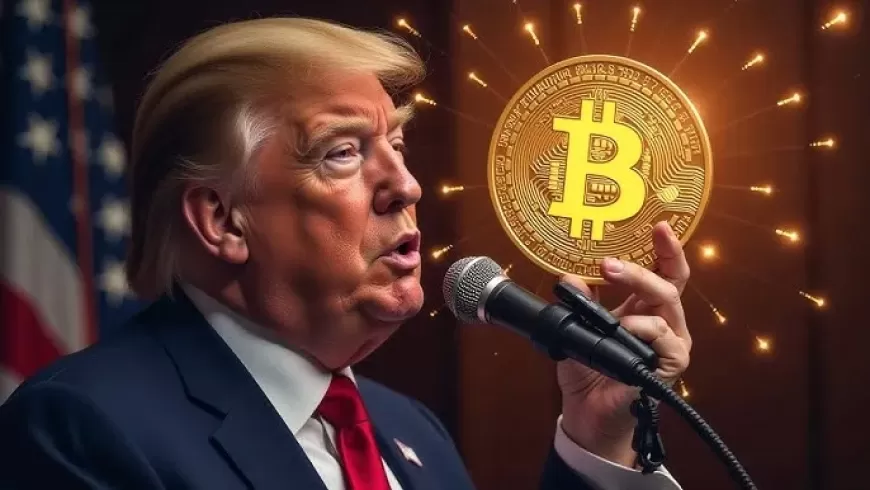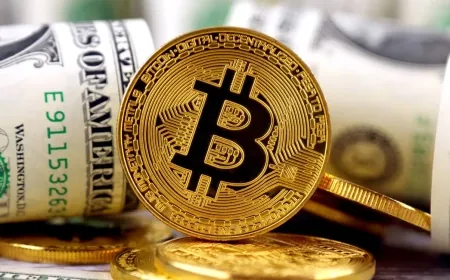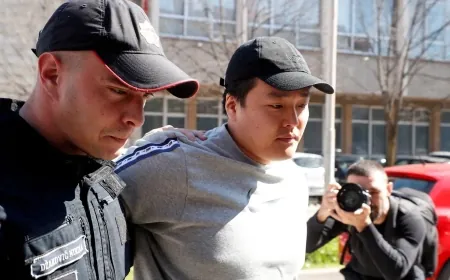Trump Proposes U.S. Bitcoin Reserve to Strengthen National Assets and Reduce Debt
President-elect Trump plans to create a U.S. Bitcoin reserve, aiming to boost national assets and compete globally, but faces risks and challenges in Congress.

President-elect Donald Trump has outlined plans to establish a Bitcoin reserve for the United States, aiming to position the country as a global leader in the cryptocurrency space. His proposal centers around creating a strategic Bitcoin stockpile that could serve as a long-term national asset. But what would this look like, and what are the potential risks?
How Would a Bitcoin Reserve Work?
Currently, the U.S. government owns nearly $20 billion in Bitcoin, largely through assets seized in criminal investigations. However, the government has sold off parts of this Bitcoin in the past. Trump, however, wants to halt these sales, arguing that holding onto the Bitcoin would create a valuable resource for the country. In fact, Trump has gone so far as to say that “Never sell your Bitcoin” is a rule the government should follow.
With Bitcoin prices up over 100% this year, Trump believes that restricting the sale of U.S. Bitcoin would help keep its value high. According to experts, reducing the overall supply of Bitcoin in the market could indeed keep prices elevated, benefiting both the government and Bitcoin investors.
The Push for a National Bitcoin Stockpile
Some people are urging the government to take things further. Senator Cynthia Lummis, a Republican from Wyoming, introduced a bill earlier this year that would see the U.S. acquire 1 million Bitcoin over time—roughly 5% of the total supply. Her plan suggests that, over the long term, this reserve could help lower the national debt and serve as a more stable store of value than gold.
Lummis believes that Bitcoin, despite its volatility, would provide the U.S. with a strong financial position to compete with countries like China, which holds around $18.5 billion in Bitcoin. Trump has echoed this concern, stating that the U.S. needs to keep up with other nations embracing cryptocurrency.
The Risks of a U.S. Bitcoin Reserve
However, creating a Bitcoin reserve for the U.S. government is not without its risks. Bitcoin has a history of significant price fluctuations. Just last year, the cryptocurrency lost over 70% of its value, and the potential for future drops raises concerns. If the price falls after the government acquires a significant amount, taxpayers could be on the hook for substantial losses.
Owen Lau, an analyst at Oppenheimer & Co., believes that while halting Bitcoin sales is a simple task, securing the funding for a strategic Bitcoin reserve is more complicated. He argues that Congress would need to approve the funding for such a reserve, and it may be difficult to get lawmakers on board with the idea.
Another concern is the security of Bitcoin wallets. If the U.S. were to hold Bitcoin in digital wallets, those wallets could become targets for hackers. The decentralized nature of Bitcoin means that once it’s in a wallet, it could be at risk from cyberattacks, and this could put the government’s holdings in danger.
Would the U.S. Be Able to Afford a Bitcoin Reserve?
Funding a Bitcoin reserve would likely require the issuance of new Treasury debt, which could face strong opposition from the Federal Reserve. Jerome Powell, the Chairman of the Federal Reserve, recently commented that the central bank isn’t looking to hold Bitcoin, citing legal restrictions on what assets it can own. For this reason, funding a Bitcoin reserve could be a tough sell to lawmakers and financial regulators alike.
While some argue that Bitcoin’s volatility is too risky for the government to invest in, others point out that the long-term benefits of holding Bitcoin might outweigh the risks. Establishing a Bitcoin reserve could help the U.S. reduce its $36 trillion national debt and compete with other countries in the global cryptocurrency space.
Is a U.S. Bitcoin Reserve a Smart Move?
Trump’s proposal to create a national Bitcoin stockpile could change the financial landscape in the U.S., but it comes with significant challenges. The government would need to carefully consider the risks, including the volatility of Bitcoin, cybersecurity concerns, and the potential impact on taxpayers. While the idea has its supporters, it’s unclear whether it will gain enough traction in Congress to become a reality. As the U.S. looks to the future of cryptocurrency, the debate over a Bitcoin reserve is just beginning.
Also Read: Bitcoin Miners MARA and Hut 8 Make Major Moves with $1.63 Billion Bitcoin Acquisition
































































